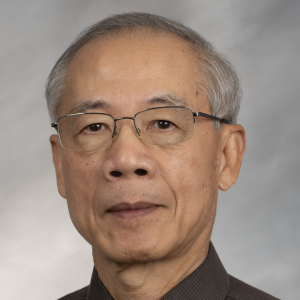Event details
Retinitis pigmentosa, a group of genetic disorders in which the retina’s light-sensing cells — its rods and cones — die or stop responding to light, is thought to affect around 2 million people worldwide. Treatments typically aim to slow down the loss of sight, but some researchers have grander ambitions: to restore lost vision, using a form of gene therapy that can make cells of the retina sensitive to light.
Join Botond Roska, Co-director of the Institute of Molecular and Clinical Ophthalmology and Zhuo-Hua Pan, Scientific Director of Ligon Research Center of Vision at the Kresge Eye Institute to discuss the progress that has been made towards this goal of reversing blindness, the trials that are underway right now, and what challenges lie ahead.
Presenters

Moderator: Richard Hodson
Senior Editor, Supplements
Nature

Botond Roska
Scientific Director
Institute of Molecular and Clinical Ophthalmology Basel, Switzerland
neurobiology from the University of California, Berkeley and studied genetics and virology as
a Harvard Society Fellow at Harvard University and the Harvard Medical School. He then led
a research group at the Friedrich Miescher Institute in Basel from 2005-2018. In 2010 he
became Professor at the Medical Faculty and in 2019 Professor at the Science Faculty of
the University of Basel. Since 2018 he is a founding director of the Institute of Molecular and
Clinical Ophthalmology Basel (IOB).
At IOB Botond Roska leads a research group focusing on the understanding of vision and
its diseases and the development of new therapies to restore vision. He has received
several awards, Louis-Jeantet Prize for Medicine, the Körber European Science Prize, and
the Wolf Prize in Medicine

Zhuo-Hua Pan
Scientific Director
Ligon Research Center of Vision at the Kresge Eye Institute in Detroit, Michigan, USA
Dr. Zhuo-Hua Pan is the Edward T. and Ellen K. Dryer Endowed Professor and a professor in the Department of Ophthalmology, Visual and Anatomical Sciences at the Wayne State University School of Medicine. He also serves as the scientific director of the Ligon Research Center of Vision at Kresge Eye Institute in Detroit. After earning his Ph.D. in Biophysics from SUNY Buffalo, Dr. Pan held academic positions at Children's Hospital and Brigham & Women's Hospital, both affiliated with Harvard Medical School. He joined Wayne State University in 1999.
In 2006, Dr. Pan's group published a groundbreaking proof-of-concept study on optogenetic vision restoration. His team has since been focusing on improving this technology, leading to over 15 peer-reviewed papers and 10 patents or patent applications. Dr. Pan served as a scientific advisor for RetroSense Therapeutics, which initiated the first clinical trials for optogenetic therapy. He is also a scientific co-founder of Ray Therapeutics, a company currently conducting clinical trials with advanced optogenetic technology.

